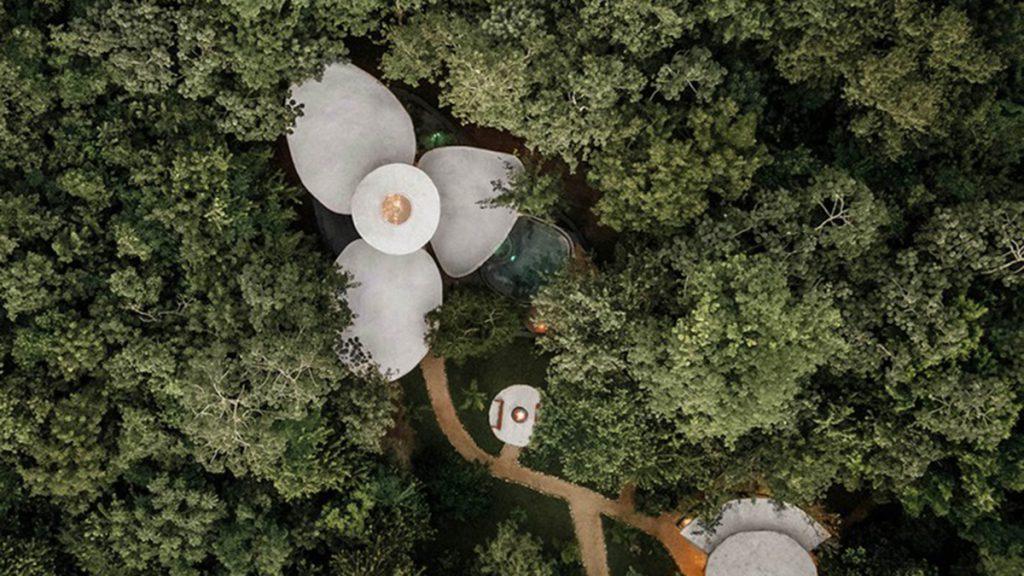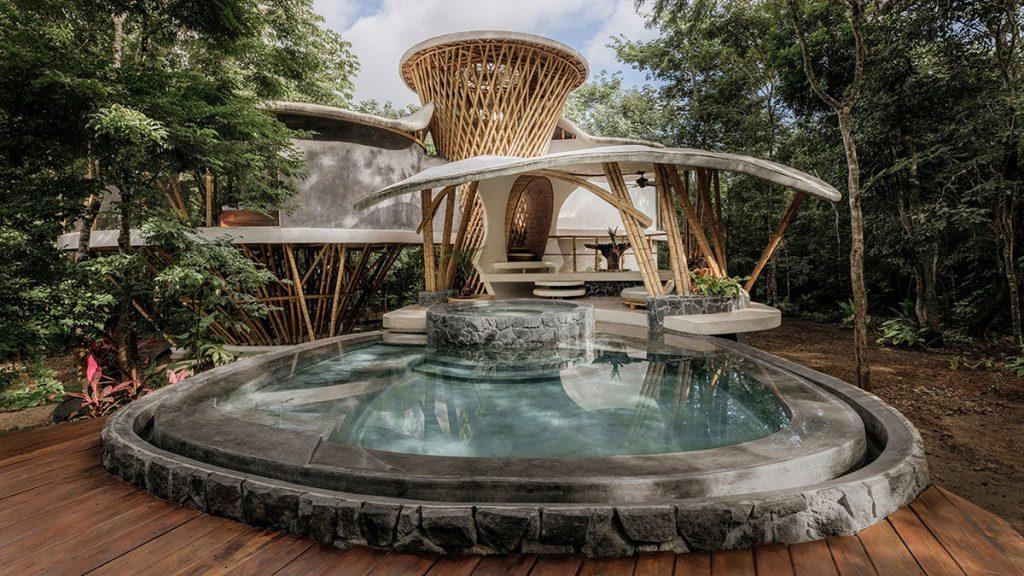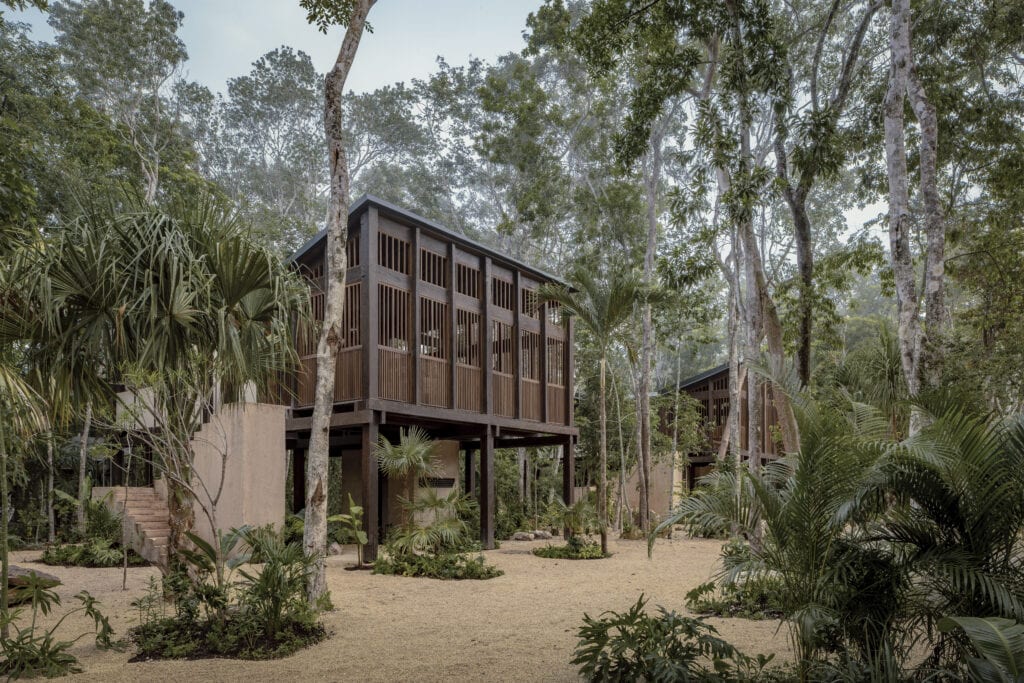From above, it resembles a giant bloom—a giant bloom of the trillium, known in our region as the wood lily. Nestled in the heart of Yucatán, deep in the jungle of Mexico, it blends seamlessly with the surrounding trees. This is no ordinary structure. It is a hotel whose name reflects its appearance: Trillium by Awakening.

In fact, the term “hotel” might be too grand for the building’s actual dimensions. With only three bedrooms—including three bathrooms—Trillium can accommodate just six guests at a time. It is more of a villa with full service, offering access to a freshwater cave, a jacuzzi, and a pool.

The architects from NOD Studio quickly realized that this project was about more than just designing a conventional guesthouse. When hotel operators Adriana Chardi and Martín Löffler approached them, “we immediately felt that this was no ordinary project. They weren’t looking for architects to simply draw up plans—they were inviting us into their vision and their dream,” says Fernando Artigas of NOD Studio.
Playing with Nature
Adriana Chardi and Martín Löffler are the founders of Awakening Experiencias, a company that promises extraordinary stays in extraordinary surroundings. In short: extraordinary experiences. “Awakening represents an innovative approach to sustainable hospitality, one that is based on harmony with the natural environment,” say the operators.

Natural, organic forms—just as they appear in nature—served as inspiration for the design of Trillium. The connection between humans and nature takes center stage here. “Trillium provides a space where both can coexist in perfect harmony,” explains NOD Studio.

“When we first set foot on the site, everything made sense—the land spoke to us, and we knew we had to honor its energy. The idea of a flower emerged naturally—a flower whose petals would unfold in harmony with the jungle. From that moment on, everything took shape,” Fernando Artigas continues.

Trillium consists of three main elements, which, like the petals of a wood lily, are arranged around the central core—a bamboo spiral staircase. The three bedrooms are spread across different levels. Guests reach their rooms via a gravel path leading to the terrace with a pool, which then extends further into the heart of the bloom. In the evening, the pathway is illuminated with warm, indirect lighting, making the surroundings feel even more immersive.
The More Natural, the Better
Another pathway, made of stepping stones across the water, leads to the villa. Behind it, the main lobby unfolds beneath an impressive bamboo dome. At Trillium by Awakening, there are no defined boundaries between indoors and outdoors. The interior walls serve only to define spaces and provide structural support, while the rest of the building is upheld solely by a bamboo framework.
The bamboo pillars not only bear the physical structure but also symbolize resilience, flexibility, a deep connection with nature, and lightness. The walls are coated with Chukum—a natural stucco made from mineral and plant-based materials, giving the surface a soft, almost silky texture.

The harmony between nature and humanity is what gives Trillium by Awakening its unique charm. It feels as if everything has come together naturally, as if the structure has grown rather than been built. In a way, that is true: Trillium was created using a blend of traditional craftsmanship and contemporary architecture, with a focus on sustainable building methods. Unlike conventional architecture projects that rely on industrial construction processes, Trillium was built entirely by hand using traditional artisanal techniques. Every element was crafted by local artisans from Yucatán and Chiapas.
Text: Eva Schroeder
Fotos: NOD Studio




iThere are no comments
Add yours